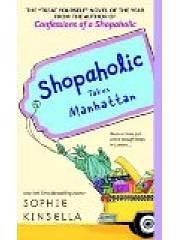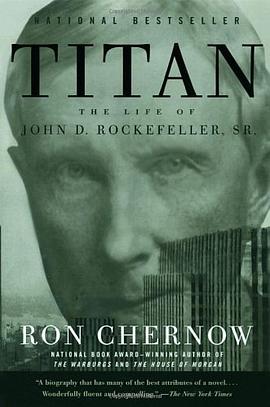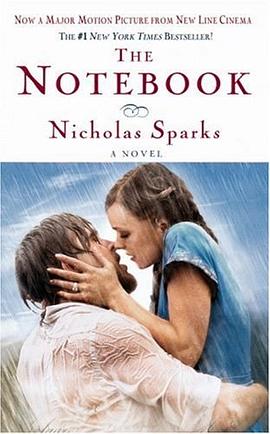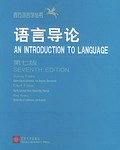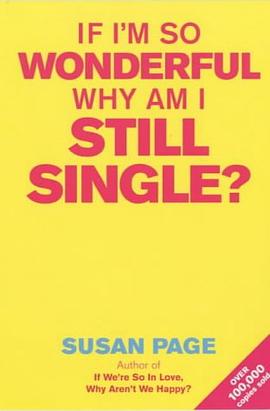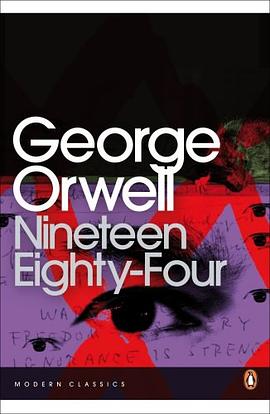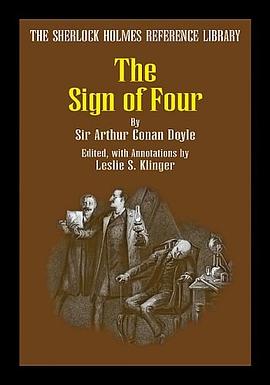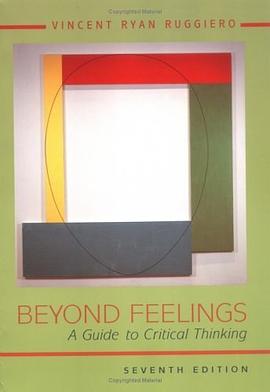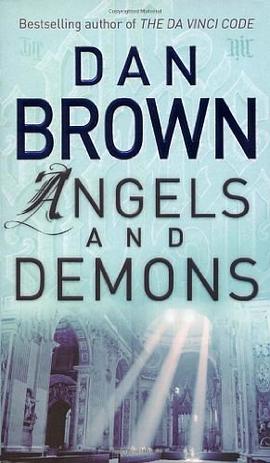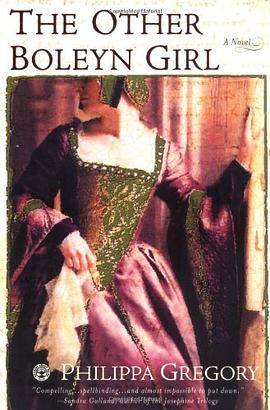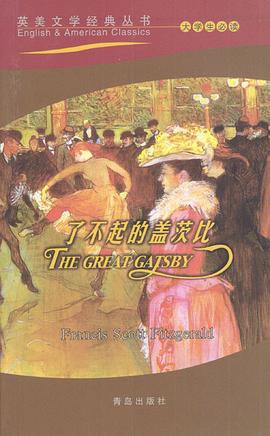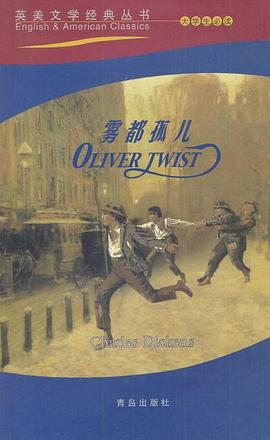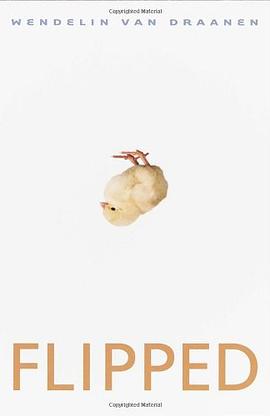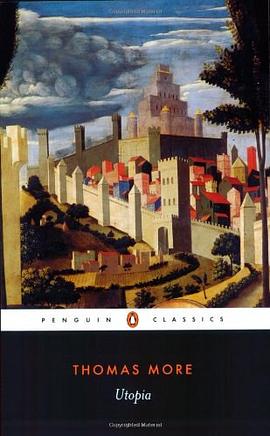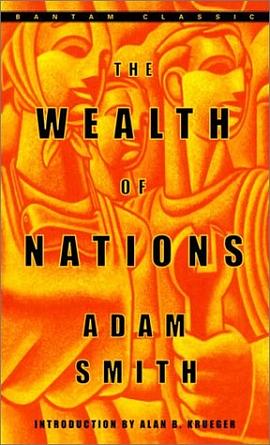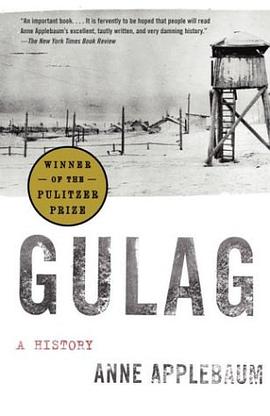

具體描述
The Gulag—a vast array of Soviet concentration camps that held millions of political and criminal prisoners—was a system of repression and punishment that terrorized the entire society, embodying the worst tendencies of Soviet communism. In this magisterial and acclaimed history, Anne Applebaum offers the first fully documented portrait of the Gulag, from its origins in the Russian Revolution, through its expansion under Stalin, to its collapse in the era of glasnost. Applebaum intimately re-creates what life was like in the camps and links them to the larger history of the Soviet Union. Immediately recognized as a landmark and long-overdue work of scholarship, Gulag is an essential book for anyone who wishes to understand the history of the twentieth century.
Winner of the 2004 Pulitzer Prize for General Nonfiction.
Finalist for the 2003 National Book Award, Nonfiction.
著者簡介
Anne Applebaum is a columnist and member of the editorial board of the Washington Post. A graduate of Yale and a Marshall Scholar, she has worked as the foreign and deputy editor of the Spectator (London), as the Warsaw correspondent for the Economist, and as a columnist for the online magazine Slate, as well as for several British newspapers. Her work has also appeared in the New York Review of Books, Foreign Affairs, and the Wall Street Journal, among many other publications. She lives in Washington, D.C., with her husband, Radek Sikorski, and two children
Biography
Anne Applebaum is a columnist and member of the editorial board of The Washington Post.
She began working as a journalist in 1988, when she moved to Poland to become the Warsaw correspondent for the Economist. She eventually covered the collapse of communism across Central and Eastern Europe, writing for a wide range of newspapers and magazines.
Returning to London in 1992, she became the Foreign Editor, and later Deputy Editor, of the Spectator magazine. Following that, she wrote a weekly column on British politics and foreign affairs, which appeared at different times in the Daily Telegraph, the Sunday Telegraph, and the Evening Standard newspapers. She covered the 1997 British election campaign as the Evening Standard's political editor. For several years, she wrote the "Foreigners" column in Slate magazine.
Her first book, Between East and West: Across the Borderlands of Europe, described a journey through Lithuania, Ukraine and Belarus, then on the verge of independence. Her second book, Gulag: A History, narrates the history of the Soviet concentration camp system and describes daily life in the camps. It makes extensive use of recently-opened Russian archives.
Over the years, her writing has appeared in The Wall Street Journal, The Financial Times, The International Herald Tribune, Foreign Affairs, The Boston Globe, The Independent, The Guardian, Commentaire, Suddeutsche Zeitung, Newsweek, The New Criterion, The Weekly Standard, The New Republic, The New York Review of Books, The National Review, The New Statesman, The Times Literary Supplement and the Literary Review, among others. She has appeared as a guest and as a presenter on many radio and television programs, among them BBC's Newsnight, The Today Progamme, The Week in Westminster, as well as CNN, MSNBC, CBS and Sky News.
Anne Applebaum was born in Washington, D.C. in 1964. After graduating from Yale University, she was a Marshall Scholar at the London School of Economics and St. Antony's College, Oxford. In 1992 she won the Charles Douglas-Home Memorial Trust award for journalism in the ex-Soviet Union. Between East and West won an Adolph Bentinck prize for European non-fiction in 1996. Her husband, Radek Sikorski, is a Polish politician and writer. They have two children, Alexander and Tadeusz.
Author biography courtesy of Anne Applebaum's official web site.
圖書目錄
Introduction
Pt. 1 The Origins of the Gulag, 1917-1939
1 Bolshevik Beginnings 3
2 "The First Camp of the Gulag" 18
3 1929: The Great Turning Point 41
4 The White Sea Canal 58
5 The Camps Expand 73
6 The Great Terror and Its Aftermath 92
Pt. 2 Life and Work in the Camps
7 Arrest 121
8 Prison 146
9 Transport, Arrival, Selection 159
10 Life in the Camps 183
11 Work in the Camps 216
12 Punishment and Reward 242
13 The Guards 256
14 The Prisoners 280
15 Women and Children 307
16 The Dying 334
17 Strategies of Survival 344
18 Rebellion and Escape 390
Pt. 3 The Rise and Fall of The Camp-Industrial Complex, 1940-1986
19 The War Begins 411
20 "Strangers" 420
21 Amnesty - and Afterward 445
22 The Zenith of the Camp-Industrial Complex 460
23 The Death of Stalin 476
24 The Zeks' Revolution 484
25 Thaw - and Release 506
26 The Era of the Dissidents 527
27 The 1980s: Smashing Statues 552
Epilogue: Memory 564
App How Many? 578
Notes 587
Bibliography 637
Glossary 655
Text and Illustration Permissions 659
Index 661
· · · · · · (收起)
讀後感
原链接:http://blog.sina.com.cn/s/blog_4e5779740101m41p.html 大多数时候我们读一本书,是为了消遣,或者那跟我们的谋生相关。很显然,《古拉格:一部历史》绝不是一部有趣的著作,或者有什么实际可变现的用处。它的价值在别处。 一:“死去才是规则,活着则是意外。” ...
評分又是古拉格啊。 刚看到书名时我的第一反应如上,然后下一个念头就是“不知道和古拉格群岛有什么不同”——毕竟索尔仁尼琴的那本书给人印象太深了。 买回来看完之后发现确实有不同,比起索尔仁尼琴的回忆录手法和布尔加科夫的文学手法,这本书作为一本严肃的历史纪实著作要更为...
評分我曾不止一次讲过三十年前的事:索尔仁尼琴著《古拉格群岛》中译本出版,内部发行,限副局级以上干部凭工作证购买。我所在的报社是局级单位,央求一位不很熟悉的领导同去东长安街的群众出版社读者服务部方才购得一套。当夜开读,时为严冬,感觉如冰水浇背,读完竟大病一...
評分原链接:http://blog.sina.com.cn/s/blog_4e5779740101m41p.html 大多数时候我们读一本书,是为了消遣,或者那跟我们的谋生相关。很显然,《古拉格:一部历史》绝不是一部有趣的著作,或者有什么实际可变现的用处。它的价值在别处。 一:“死去才是规则,活着则是意外。” ...
評分古拉格是ГУЛАГ的音译,他们是俄文Главное Управление Исправительно-Трудовых Лагерей и колоний的首写字母缩写,这些俄文字词的意思,按照本书作者安妮•阿普尔鲍姆的解释就是:古拉格是苏联内务部的主管劳动改...
用戶評價
震撼的曆史。沒人翻譯麼,這麼精彩的一本書……
评分原書不用說瞭,經典。個人覺得,最前頭的序章和最末尾的反思部分是精華,分彆討論兩個問題:1. 西方為什麼對納粹(極右)的容忍度低,對蘇聯(極左)的容忍度高。2. 俄羅斯為什麼很少公開反思和譴責蘇聯罪惡,甚至懷舊和粉飾(作者的一個答案是:因為當年的罪犯及其後人仍然掌權)
评分納粹之惡,舉世皆知,而與之不相伯仲的共産主義之惡,或說斯大林之惡,無論俄國人自己,還是西方,都還不情願麵對。作者力圖錶現列寜執政到蘇東巨變這近七十年時間裏,這個被縮稱為“古拉格”的奴工體係,如何管理、摺磨包括作奸犯科的罪犯,和以各種名義未經審判或刑訊逼供投入這個體係的所謂“政治犯”。政治犯們所受的摺磨和最終無名地死亡,其慘已經無法用言語形容。作者耙梳史料、迴憶錄、公開文件,最終以史傢般謹嚴的文字一樁樁描述齣來,讀來如入地獄。而讀完以後,我簡直如同脫胎換骨,看世界的眼光都不同瞭。
评分28%
评分每個人都應該讀一讀。
相關圖書
本站所有內容均為互聯網搜索引擎提供的公開搜索信息,本站不存儲任何數據與內容,任何內容與數據均與本站無關,如有需要請聯繫相關搜索引擎包括但不限於百度,google,bing,sogou 等
© 2025 book.quotespace.org All Rights Reserved. 小美書屋 版权所有


